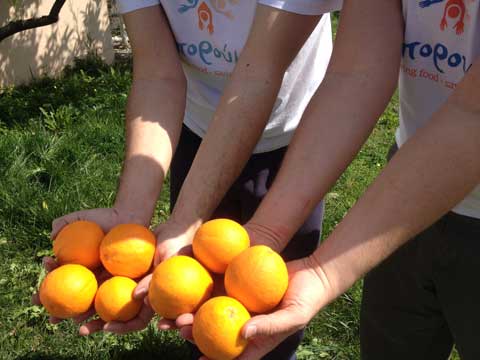- About
- Topics
- Story
- In-Depth
- Picks
- Opinion
- News
- Donate
- Signup for our newsletterOur Editors' Best Picks.Send
Read, Debate: Engage.
| topic: | Food Security |
|---|---|
| located: | Malaysia |
| editor: | Ashley Yeong |
Food is a significant part of Malaysian identity, but alongside this love for food comes a pressing issue: food waste. More than half of Malaysia’s municipal solid waste consists of edible food. The Solid Waste Management and Public Cleansing Corporation reports that Malaysians produce around 17,000 tonnes of food waste daily, with 24 per cent still suitable for consumption. That’s about 4,080 tonnes of perfectly edible food discarded every day.
Globally, the problem is even more alarming. According to the UN Food and Agriculture Organization report, 30 per cent of all food grown worldwide is never consumed. This wastage contributes to environmental damage in Malaysia—food waste releases methane as it decomposes—and worsens food insecurity. While some struggle to access food, massive amounts unnecessarily go to waste.
The issue affects every stage of the food supply chain. Cosmetic waste is an issue where fresh produce is discarded for not meeting aesthetic standards. Although perfectly edible, oddly shaped carrots and slightly bruised apples never make it to supermarket shelves.
Local efforts are emerging to tackle this avoidable problem. Graze Eatery is one example: a café that sources surplus food from supermarkets, transforming what would otherwise be waste into meals. This initiative reduces waste and highlights the untapped potential of food that might otherwise go uneaten. Graze Market is another concept by the same organisation, which provides food aid and nutrition boxes to underserved communities through sponsorship programs
Graze Eatery is part of a growing movement in Malaysia to curb food waste. Another initiative, The Lost Food Project, rescues surplus food from supermarkets and wholesalers, redistributing it to communities below the poverty line to combat hunger and climate change. As of October 2023, the organisation has prevented 6.7 million kg of food from entering landfills and provided 19.3 million meals to those in need.
Despite these efforts, food waste remains a significant challenge. Solutions require action at multiple levels. Local initiatives like Graze Eatery show that progress is possible, but scaling these efforts will be vital in making a real impact. Addressing food waste must become part of Malaysia’s broader policies and everyday practices.
For a country that holds food in such high regard, the next step is clear: it must rethink how it values the food it produces and consumes.
Image by Ulrike Mai.

